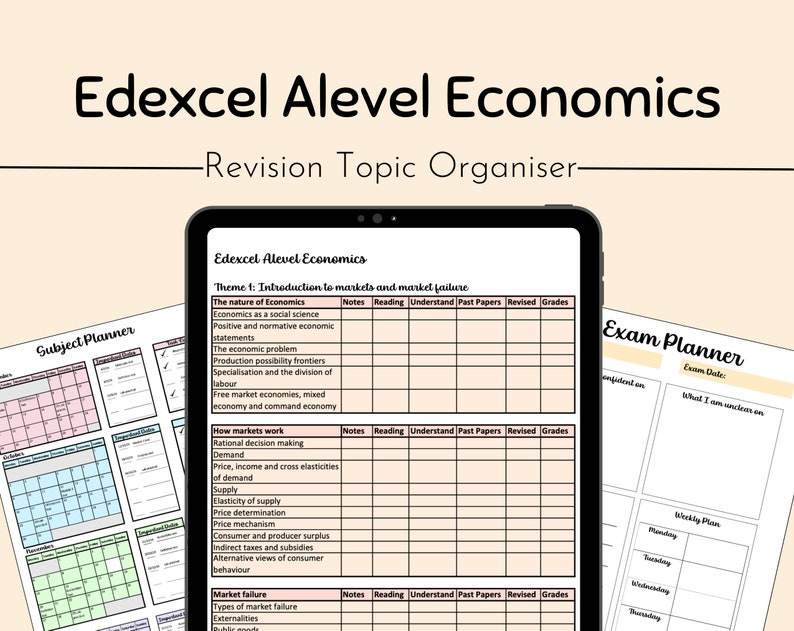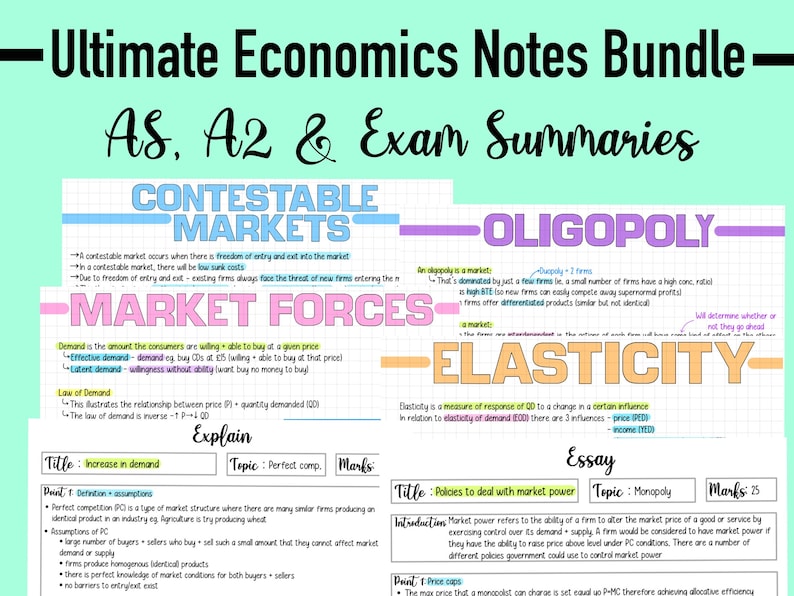Is A Level Economics Hard?: A Guide for Students
Are you considering taking A-Level Economics under the Edexcel specification? Perhaps you're already enrolled and seeking guidance on how to navigate this subject effectively. With its reputation for being both challenging and rewarding, A-Level Economics attracts students keen on understanding the complexities of economic systems and their impact on society.
In this article, we'll address some of the most commonly asked questions about A-Level Economics and provide insights into how to excel in this subject.
What is A-Level Economics?
A-Level Economics delves into the fundamental principles that govern economic behaviour, decision-making, and policy formulation.
Students explore topics such as microeconomics, macroeconomics, market structures, government intervention, international trade, and development economics. The Edexcel specification emphasises real-world applications, enabling students to analyse economic issues critically and develop well-rounded perspectives.
Is A-Level Economics Hard?
The difficulty level of A-Level Economics can vary depending on individual aptitude, prior knowledge, and study habits. While some find it challenging, others discover a natural affinity for the subject.
Success in A-Level Economics often hinges on consistent effort, effective study techniques, and a genuine interest in understanding economic concepts. With the right approach and resources, even complex topics can be mastered.
What is A-Level Economics Like?
Studying A-Level Economics involves a mix of theoretical learning, practical application, and critical analysis. You'll encounter concepts like supply and demand, elasticity, inflation, unemployment, fiscal policy, and more.
The subject requires logical reasoning, data interpretation, and the ability to evaluate economic theories in different contexts. A-Level Economics fosters analytical skills that are valuable not only in academia but also in various career paths.
How to Revise A-Level Economics
Effective revision is key to succeeding in A-Level Economics.
Start by organising your study materials and creating a structured revision plan. Consider using tools like the Edexcel A-Level Economics Topic Organiser/Progress Tracker/Checklist to track your progress and ensure comprehensive coverage of syllabus content.
Additionally, invest in resources like the ULTIMATE Economics Notes Bundle A Level to consolidate your understanding and reinforce key concepts.
When revising, aim for a balance between reviewing theoretical concepts, practicing numerical problems, and analysing case studies. Actively engage with the material by summarising key points, creating flashcards, and attempting past exam questions. Don't hesitate to seek clarification from teachers, peers, or online resources if you encounter difficulties.
Is A-Level Economics Easy?
The perception of difficulty varies from student to student. While A-Level Economics presents challenges, it also offers opportunities for intellectual growth and academic achievement. With dedication, perseverance, and the right support system, many students find success in mastering this subject. Remember, the journey may not always be easy, but the rewards of understanding economic principles and their real-world implications are invaluable.
In conclusion, A-Level Economics is a dynamic and enriching subject that equips students with essential skills for academic and professional success. By adopting effective study strategies, leveraging quality resources such as student digital books, and staying motivated, you can overcome challenges and excel in this field. Embrace the journey of learning, and remember that every hurdle you overcome brings you closer to mastering A-Level Economics.



